July 6, 2013
|
 Steve Dennie (right), Director of Communications
Steve Dennie (right), Director of Communications
The US National Conference, meeting on June 27, eliminated the local conference, the highest governing body of each church. Which is probably news to you. I’m guessing you haven’t heard of such an entity being part of your church’s organizational structure. More to the point, even though “highest governing body” sounds important, axing it will probably not change anything about how your church operates.
The local conference seems to have outlived its usefulness and was ready for the organizational scrapheap. And yet, the local conference has played an important role throughout UB history, so it’s worth explaining what exactly just went bye-bye.
Every church has a local board (often called “administrative board”) which meets regularly to oversee the affairs of the church. However, technically, the highest governing body of each church has been the local conference, which consists of:
- The board of administration.
- Plus the bishop.
- Plus the cluster leader (or conference superintendent in earlier times).
- Plus all persons in that church who hold a ministerial license.
The bishop, superintendent, or cluster leader chaired local conferences.
Before we did away with annual conferences in 2005, the conference superintendent typically met with each church’s local conference once a year (it was actually four times a year further back, if you can believe that; we called it the quarterly conference). Practices probably differed from conference to conference, but the way I saw it operate is: we would hold our regular board meeting, adjourn, and then the conference superintendent would convene the local conference with pretty much the same group of people. The local conference could grant and renew local church ministerial licenses, handle church trials and appeals, and disband a church. It was a step above the administrative board, which handled most church business.
The local conference became somewhat superfluous in 2005 when we killed off the annual conferences. Plus, it didn’t fit very well into modern organizational structures. (The church’s highest governing body is chaired by somebody who isn’t even part of the church? Really?) Licensing now occurs throughout the year, and the regular local board can handle just fine all issues previously assigned to the local conference. We don’t need this uber group.
Besides, the local conference as we’ve known it created a conflict in large churches with many licensed ministers on staff. Since all of those ministers are voting members of the local conference, they can potentially outnumber the laypersons on the board, making the pastoral staff the major “power” block. This also puts staff in a position of authority regarding the senior pastor, to whom they are accountable. Not a good situation, from an organizational standpoint.
The National Conference readily agreed. They approved, without discussion, the proposal to discontinue the local conference. So now, the local board is the church’s highest governing body, period. No other local church group can trump their decisions.
And yet….
One element of the local conference involved calling a special meeting with the bishop if matters arose which, it was felt, required the bishop’s involvement. It seemed wise to keep this option available. So, in another proposal, we added a provision by which this can still happen. It, too, passed without comment. It says:
“A special meeting of the local board may be requested by the bishop, the cluster leader, the senior pastor, or upon a written request from the local board. The bishop will determine whether or not to actually call a special meeting. The bishop or his designee shall chair special meetings of the local board.”
A “special meeting” is not a business meeting, but has a specific purpose—probably to deal with a problem of some kind. The local board is still the decision-making body of the church.
A special meeting can be requested of the bishop, but not demanded just by putting in the request. As the wording states, the bishop will decide whether or not to actually call a special meeting. It may be that the bishop feels the problem can be better solved in other ways, so the proposal gives him that flexibility. For instance, if two persons are in conflict, maybe the bishop will opt to get together with the two of them and hash things out. No sense using a bazooka when a BB gun might do the trick.
So, the local conference is gone, and we’ve cleaned up the local church organizational structure. But churches still have an avenue for requesting the bishop’s intervention.
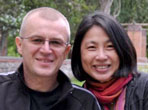 During the last part of June and early July, 18 persons from several UB churches in the United States participated in an English Camp in Kutno, Poland. The team worked with Donna and Arek Delik (right), church planters with Operation Mobilization in Kutno.
During the last part of June and early July, 18 persons from several UB churches in the United States participated in an English Camp in Kutno, Poland. The team worked with Donna and Arek Delik (right), church planters with Operation Mobilization in Kutno.
 Jonetta, one of the newest staff members of Global Ministries, has a ministry opportunity in a limited-access country. To enable her participation, she needs $4,000 for initial ministry expenses. Jonetta has limited resources available to her and is currently involved in intense training for preparation for ministry.
Jonetta, one of the newest staff members of Global Ministries, has a ministry opportunity in a limited-access country. To enable her participation, she needs $4,000 for initial ministry expenses. Jonetta has limited resources available to her and is currently involved in intense training for preparation for ministry. Steve Dennie (right), Director of Communications
Steve Dennie (right), Director of Communications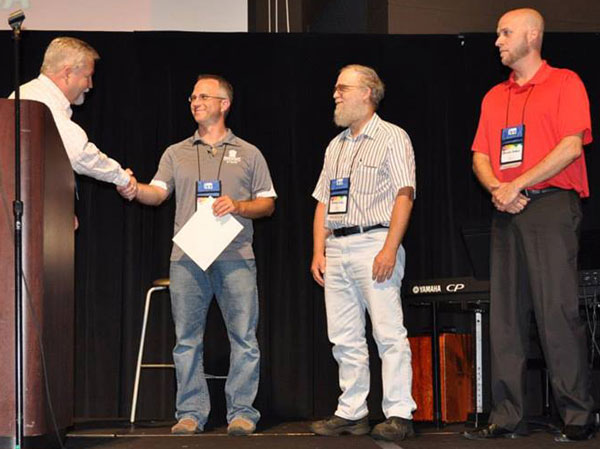
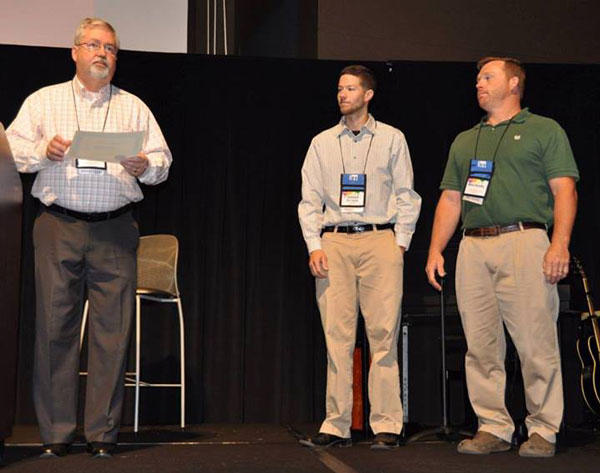
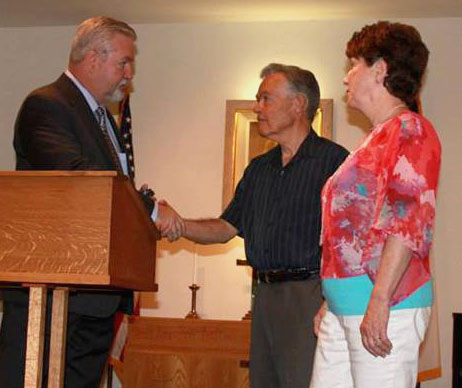
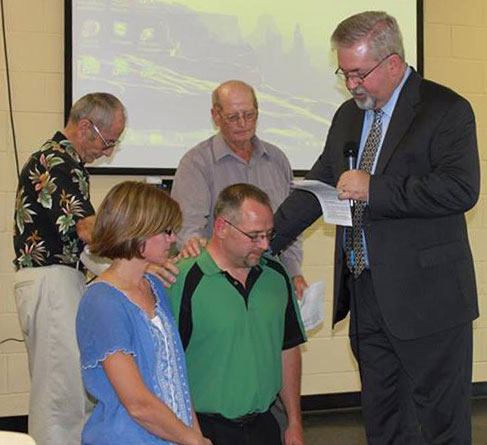
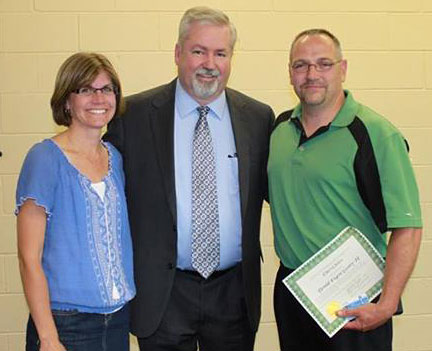
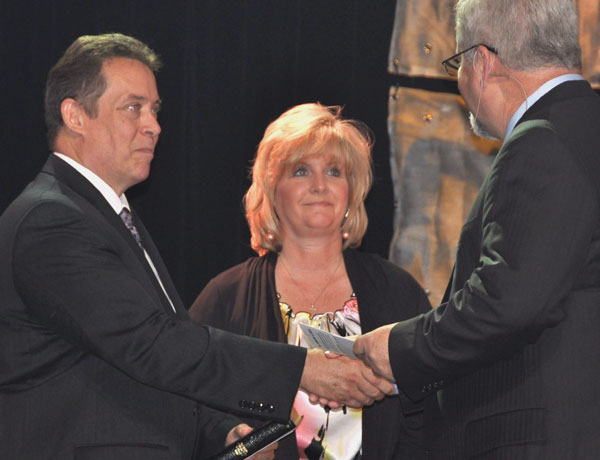
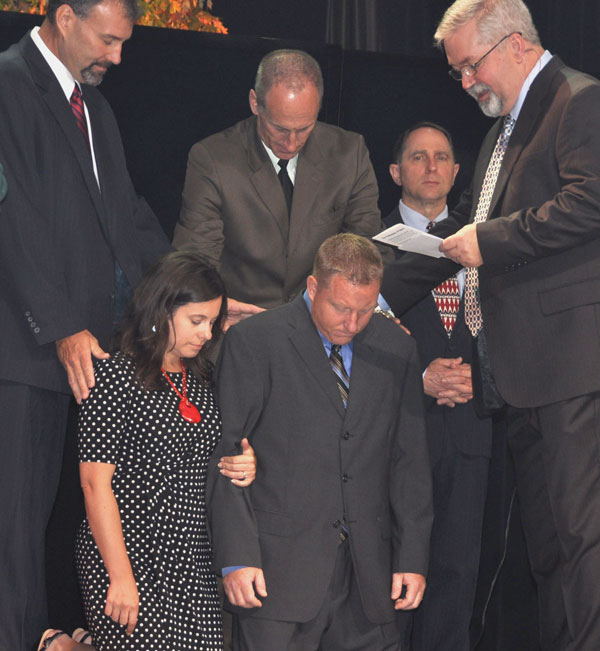
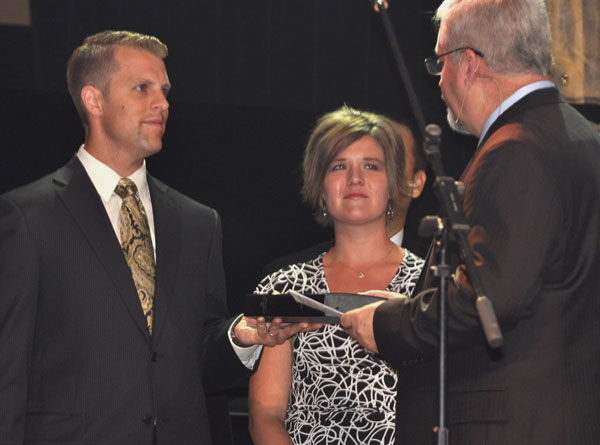
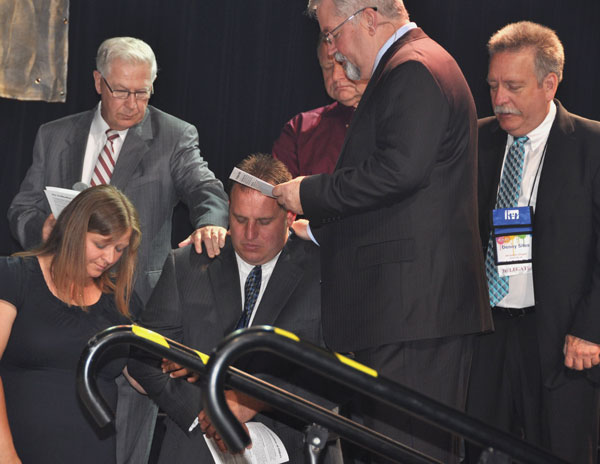
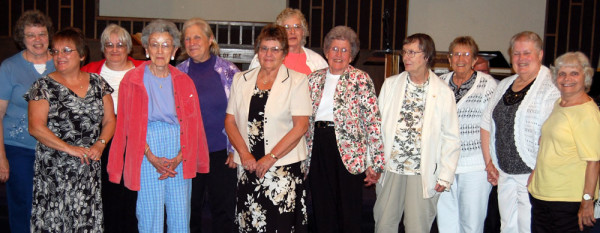
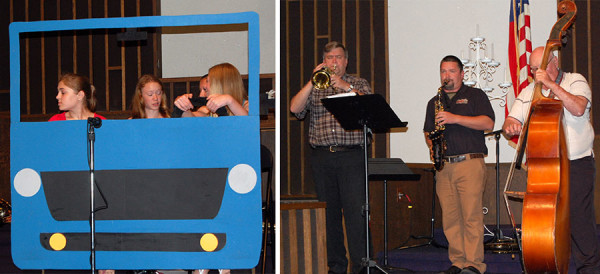
 Donna Hollopeter (right), Global Ministries associate director, was the speaker for the evening. She showed a slide presentation of missions work around the world.
Donna Hollopeter (right), Global Ministries associate director, was the speaker for the evening. She showed a slide presentation of missions work around the world. EMS President Audrey Whaley (right) stated, “The Evening Missionary Society faithfully meets every month, praying for and financially supporting missionaries worldwide. Reaching out into the community by collecting needed items for organizations county wide such as Alpha Omega, Kings Cupboard, Band of Hope, Domestic Harmony, and several others, is one of the many activities EMS is involved in.”
EMS President Audrey Whaley (right) stated, “The Evening Missionary Society faithfully meets every month, praying for and financially supporting missionaries worldwide. Reaching out into the community by collecting needed items for organizations county wide such as Alpha Omega, Kings Cupboard, Band of Hope, Domestic Harmony, and several others, is one of the many activities EMS is involved in.”